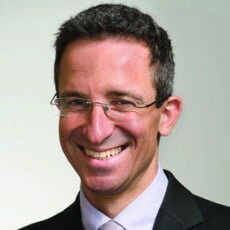by Tal Ben-Shahar
Taste the joy that springs from labor. —Henry Wadsworth Longfellow
In Hebrew, the word for “work” (avoda) stems from the same root as the word for “slave” (evod). Most of us have no choice but to work for a living. Even if we do not need to work for our survival, we are enslaved by our nature: we are constituted to want to be happy, and to be happy we need to work.
However, being enslaved by the exigencies of life and by our constitution does not preclude the possibility that we can feel free. We experience freedom when we choose a path that provides us both meaning and pleasure. Whether or not our subjective experience of work is of freedom depends on whether we choose to be slaves to material wealth or to emotional prosperity, slaves to others’ expectations or to our passions.
To makes such choices, we might begin by asking some questions of ourselves. Ask and you shall receive, say the Scriptures. When we ask questions, we open ourselves up to new quests and conquests: we see things we may not have seen before, discover paths that were previously obscured.
By posing a series of genuine questions, we challenge our assumptions, our conventional ways of thinking about what is possible in our lives: Am I happy at work? How can I become happier? Can I leave my job and find something meaningful and pleasurable? If I cannot afford to leave or, for one reason or another, do not want to leave, what can I do to make my work more enjoyable?
The right employer can create conditions that are conducive to happiness. For example, research conducted by psychologist Richard Hackman illustrates that certain conditions can lead an employee to experience more meaning in her work. First, the work should draw out a variety of talents and skills; second, the employee should complete a whole task, from beginning to end, rather than play a minor role in the big picture; finally, the employee should feel that her work has a significant impact on others. A manager who designs work that meets these conditions is likely to increase her employees’ profits in the ultimate currency: happiness.
Work by Mihaly Csikszentmihalyi illustrates how a challenging task that is neither too difficult nor too easy leads to higher levels of engagement; a manager who is mindful of the benefits of engagement—for both the employee and the organization—will more likely assign work that challenges the employee to the right degree.
Think back to some of your favorite work experiences. What was it about the specific projects or the workplace that made the experience a positive one?
We cannot, though, simply hope that the right job or right employer will be handed to us. We have to actively seek and create meaning and pleasure in the workplace. Blaming others—our parents, our teachers, our boss, or the government—may yield sympathy but not happiness. The ultimate responsibility for finding the right job or creating the right conditions at work lies with us.
In some jobs, it is possible to restructure work to meet the conditions necessary for the attainment of the ultimate currency. For example, we can experience flow by setting clear goals and challenging ourselves even when our job does not require that we do so. We can assume more responsibility and seek higher levels of involvement in work that we find interesting; we can take initiative and look for areas where we can contribute more to the organization, moving to a different department or getting involved in a new project. If, however, the setup of our job is such that it is impossible for us to feel interested and engaged, no matter how hard we try, then we might choose to look for an alternative source of income. While in some cases leaving our current workplace might not seem to be a feasible option, in most cases we can find an alternative—a workplace that, beyond the hard currency necessary for our basic material needs, will provide us with the ultimate currency.
Committing to change within the workplace or looking for a new job can be frightening. However, change is necessary if we are stuck in a job that supplies us with little beyond our material needs. Had we found ourselves in a job that did not afford us our basic material needs, we would do everything in our power to change our predicament. So why do we set lower standards for ourselves when the ultimate currency—when our own happiness—is at stake? What we need if we are to implement change in our lives is courage. And courage is not about not having fear but about having fear and going ahead anyway.
This post is excerpted from “Happier: Learn the Secrets to to Daily Joy and Lasting Fulfillment”, by Tal Ben-Shahar, PhD. Copyright ©2007, The McGraw-Hill Companies. Reprinted with permission from the publisher.
Dr. Tal Ben-Shahar, co-founder of Wholebeing Institute, is one of the lead faculty in the Certificate in Positive Psychology program—a yearlong course in the science of human flourishing. An author of five books, including bestsellers like “Happier: Learn the Secrets to Daily Joy and Lasting Fulfillment”, he consults and lectures around the world, integrating theory and practice, East and West, philosophy and psychology.



